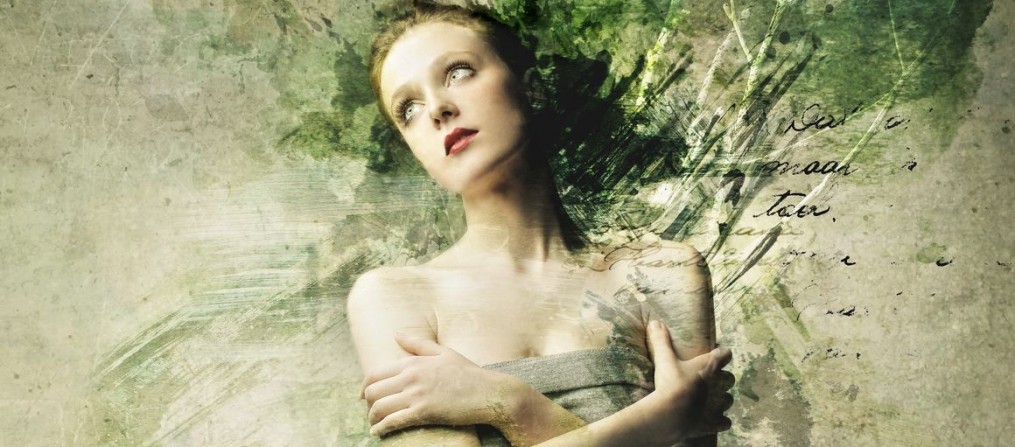To Americans of my generation, nothing says horror like 9-11. My generation has not survived a World War or endured the Great Depression. We were here for 9-11, though, and were shocked, frightened, angered and, yes, horrified.
Everyday we experience varying intensities of horror. There are kidnappings, rapes, evil bosses, impossible loves, untimely death, home devouring wildfires, debilitating ills of both body and mind. Each to their own, all are horrifying. Even if the vast majority of us escape the truly gristly or damaging forms of terror, we are all visited by suffering and we are all going to die. What then is the purpose of heaping more horror on this monstrous pile? Why does the horror fiction genre exist, and why is it prevalent in print, movies, and television? What is the place of horror in a horrifying world?

Horror in a Horrible World
One could posit that horror exists to entertain. I personally find the entire spectrum of horror from literary terror to B-movie campiness to be enjoyable. Yet I don’t think that entertainment alone is sufficient to account for the prevalence and attraction of horror. Comedy and romance entertain, and often manage to do so without anyone being eviscerated, walled-in, or chased by someone wielding an axe. If entertainment were the entire answer, there wouldn’t be any reason to go for the gross-out.
Given that horror fiction entertains by scaring readers, perhaps the purpose of the genre is to satisfy a craving for the sensation of fear. Well-executed horror brings on a breathless jumpiness via induced fright. The reader is terrified in a situation devoid of any real threat. I am not a psychologist, but it seems reasonable to hypothesize that reading horror expends some psychological energy that would otherwise be channeled into fearing reality.
Like all fiction, horror offers readers the opportunity to evaluate the fitness of choices made by characters. Should that pretty blonde run or should she hide? Should she really be doing any of this in her cheerleading outfit? Would I wear that, no, but would I hide? Would I sacrifice someone else in my party for my own survival? Would I stay behind to give the others a chance? Did you notice how quickly and how naturally the questions shifted from third to first person?
The introspective horror connoisseur gains insight into her own core values because horror fiction invites contemplation of psychologically and physically perilous scenarios. Analogies can be traced from fictional scenarios back to very real threats. Bad things can happen on an otherwise unremarkable September day; bad things can happen any time. Horror fiction gives readers an opportunity to examine how they might react if faced with an awful reality. There is a practical value to a deep and mindful experience horror fiction.
How many of you have gotten the post-horror jitters? Or asked your husband if just for one night, you might sleep with the lights on? Or heard noises in your house that you’d never noticed, and found the rooms you know to morph into ominous territory? When well done, horror fiction is capable of making me much more aware of my surroundings, at least until the adrenaline aftereffects subside. This period of hyper-awareness allows a horror aficionado the opportunity to experience the full richness of all five senses. It demonstrates how much we miss in daily life, and how much more we can apprehend when we are attuned to our surroundings. Survival has a lot to do with awareness, and horror fiction gives a good way to practice fundamental observational skills.
The purpose of horror fiction, it seems, is at least threefold. First, it serves to depressurize the psyche by expelling fear before it can become paralyzing in real life. Second, it begs the reader to examine moral and literal actions that might be taken under duress. Third, horror fiction incites a deeper awareness of one’s surroundings. All three of these purposes lend themselves to practical application with intent to survive. To wit, a person who has discharged emotional energy is calmer and more prepared to be rational. Rational choices are in turn generated by brains which have been given the opportunity and material to think things through. The actions that result from rational choice are greatly aided by close attention to the surroundings. Sometimes it makes sense to hide, sometimes it makes sense to run, but in order to know which to choose, you need to know where you are and what is out there to help or harm you.
In short, we generate and consume fictional horror because we live in a world full of real horror. We horror authors aren’t ‘adding’ to the horror, but preparing ourselves and our readers for the day we confront the darkness. And, as far as survival toolkits go, horror fiction just happens to be the most entertaining one around!

Makes me think, and I like that.
LikeLike
The wildfires in Texas got me thinking about the purpose of horror. Real families lost real homes, yet I write stories about imaginary horrors. I needed to step back and understand the place of horror fiction in the world, hence this post.
I am sure this analysis isn’t exhaustive and others will have additional insights. While I’d like to hear from people who agree with what I say, I’d be very interested to hear from people who disagree. Drop me a note!
-aniko
LikeLike
Pingback: 9/26: On Horror, First Drafts, and the Horror of First Drafts | Boddhi-Sappho